Account Login
Don't have an account? Create One
Back in September, we put out a call for nominations for innovators who had found a way to turn their creativity and passion into a revenue stream. There were only two other qualifying criteria: they have to live in Atlantic Canada and they have to be 30 or younger as of our November 7 publication date.
And boy, did we get a response.
Our chosen 30 Under 30 are building the future of our region, helping solve world-sized problems like climate change from right here at home. And they’re dedicated to this region. Every one of them said without hesitation that they were in this to build the Atlantic Canadian economy and improve the local quality of life.
Doom and gloom? Not with all this heart and innovation on the horizon.
The following list includes nine of the 30 under 30 from New Brunswick.
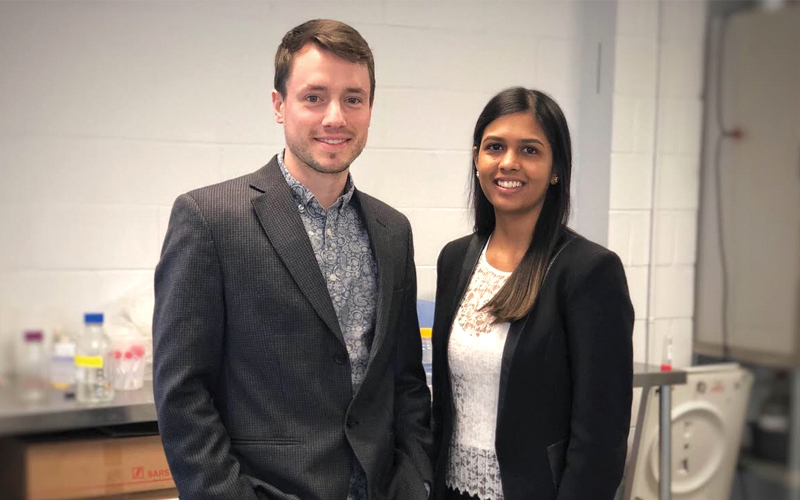
Chinova Bioworks (Fredericton)
Chinova Bioworks, which was founded in 2016, makes food and drink preservatives from a surprising source. Their product, called Chiber, is derived from the fibres of mushrooms—the little white button kind, found on the shelves of grocery stores everywhere.
It’s long been known that this mushroom fibre had preservative properties, Brown says. “But it was not explored at all because, for a long time, everyone’s just been happy with the synthetic preservatives that are being used.”
Things are different now, says Dhayagude. “Everyone today is really looking for ingredients that are transparent. They know where they’re sourced from, they really care about what they’re consuming.” So Brown, a biotechnologist, and Dhayagude, a biochemist, started working with their third co-founder, Tanzina Huq. Together, they explored the possibility of a commercial preservative made from mushrooms.
Chinova Bioworks now manufactures three different Chiber products from those mushroom fibres: one for drinks, one for dairy and one for plant-based dairy alternatives. And they get the extract from something that’s normally thrown away. “We’ve partnered with different mushroom farms in Atlantic Canada and the U.S. and we just take their waste materials and their stalks from them and then do this extraction,” Dhayagude says.
Brown won the Governor General’s Innovation Award for his work producing the mushroom-based substance used in Chiber in 2017. Dhayagude won the Startup Canada Woman Entrepreneur Award for the Atlantic region in 2019 for her efforts commercializing his innovation with Chinova Bioworks.
Brown said the company has gone through “really crazy busy and exciting” years of research, development and certification and is now operating at a pilot-scale level of production. The company raised over $2 million in seed funding from investors like AgFunder and Natural Products Canada last summer.
Chinova is based in New Brunswick, but Chiber is made in Prince Edward Island, at the BioFoodTech institute in Charlottetown.
Chinova now employs about 20 people, most of whom are women scientists and engineers—something Dhayagude is particularly proud of. She offers this advice to young Atlantic Canadian women in the field: “You may not know what to do coming out of school and choose to go down a traditional path, but there are other ways. You can use your research, turn it into a company and help solve a lot of problems.”
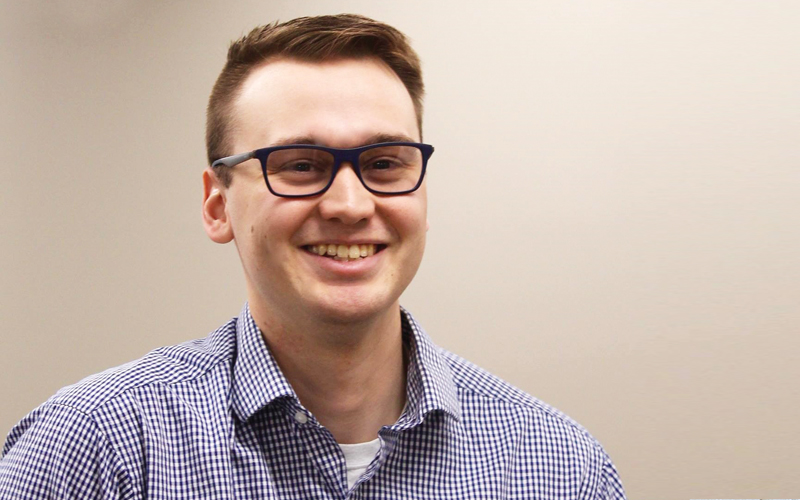
BRANDON BOURGEOIS (26)
President
Team Stripes (Moncton)
Before he launched Team Stripes, Brandon Bourgeois was a referee in the American Hockey League, making calls in high-stakes, high-level games. But he saw a problem: training for sports officials typically happens in one-off, two-day courses, and a lot of the material was outdated.
Team Stripes aims to change that, offering a suite of Masterclass-style online courses aimed—for now—at hockey referees, who can subscribe for about $100. The officiating courses are taught by retired NHL referee Don Koharski, who called 11 Stanley Cup finals. “We wanted to really innovate the way we were doing it… creating a year-round presence for training and improving, as opposed to just front-loading it in a couple days,” Bourgeois says.
Team Stripes was selected for Propel’s Incite startup accelerator program. The second phase, designed to help companies ramp up sales, ended this summer. Bourgeois said the support, especially the mentorship, from the program and from the Atlantic Canadian business community has been key to learning the ropes of both technology and entrepreneurship. He’s now gearing up to expand the Team Stripes model into other sports. And sometimes, he still referees. “But not at a high level anymore. Now I’m a washed-up guy,” he jokes.
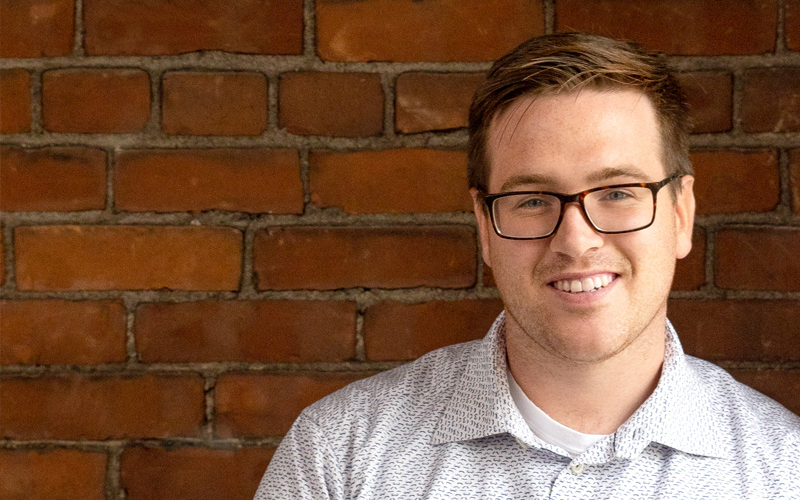
PHILIP CURLEY (28)
CEO & founder
HotSpot (Fredericton)
In 2016, Phillip Curley almost hung up on his pay-by-phone parking business. After a promising launch with enthusiastic uptake—winning the 2013 East Coast Startup Weekend followed by a $90K boost from the N.B. government in 2014—he ran into trouble when he “reached beyond our means,” he says.
Curley, who studied engineering at University of New Brunswick, launched HotSpot when he was 21. He says he wanted to “bet on himself” and improve transit in small cities. Not finished with either, he paid off his debts and turned things around.
Today, HotSpot employs 13 people and the app is used throughout the Maritimes and Ontario. Drivers can use their phones to pay for parking, add time to the meter and get notifications that their time is running out. There’s also a phone-based HotSpot virtual bus pass pilot program for UNB and St. Thomas University students. Curley says that in the first week of the project, 60 per cent of the students opted in.
“We wouldn’t have had that opportunity if we hadn’t have invested in our home, and made people trust us,” he says. “They know 10 years from now, we’ll still be here doing the same thing.”
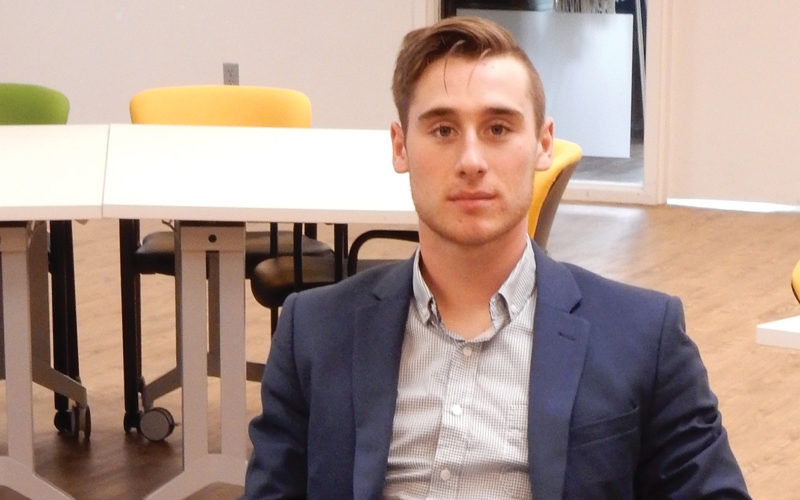
SIMON HENMAN
CEO & Co-Founder
Bitzon Technologies Inc. (Dieppe)
Simon Henman’s company, Bitzon, began on his 17th birthday. He’d watched YouTube videos about Bitcoin, a cryptocurrency backed by blockchain technology, and told his parents he wanted to buy some for his birthday. They let him. That’s when he knew he wanted to build a blockchain invention of his own.
Fast-forward to 2018 and Henman’s co-founded Bitzon (with entrepreneur Guyverson Vernous, of iCubemedia and Educode™ Canada fame). Bitzon is an online marketplace like Amazon, but powered by blockchain. It solves some big problems Henman saw with Amazon: transactions happen in seconds and sellers don’t wait weeks to get paid, nor do they pay high fees to list their stuff. Buyers can use cryptocurrency, Bitzon tokens or regular currency, and sellers pay low monthly fees for unlimited listings.
It’s not the only e-commerce solution to address these problems and Henman has a hunch Amazon is either working on their own or waiting for someone to develop a good one so they can buy it. “If Amazon comes with an offer, I’m not going to say no,” he says.
Bitzon was accepted into Propel’s Incite accelerator this past April and is expected to officially open for business in the second quarter of 2020.
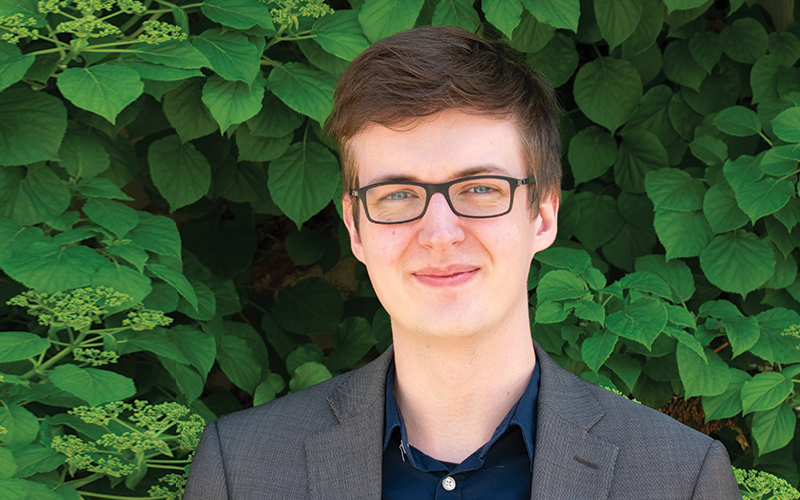
JORDAN KENNIE (26)
CEO
Stash Energy Inc. (Fredericton)
Stash Energy co-founder Jordan Kennie, together with Daniel Larsen and Erik Hatfield, developed the technology behind their thermal energy-storing heat pump system for an undergraduate engineering project at the University of New Brunswick.
“As we were presenting… we had power companies coming up and saying, ‘How do we buy the technology?’” Kennie says.
They founded Stash Energy Inc. in 2017. Now, after two years of development, Stash has 1,500 pre-orders for its systems, which pull energy from the grid when demand is low and store it until it’s needed—often in high-demand times when energy is more expensive. Kennie says storage is key to using more renewable energy.
“We don’t really choose when the sun shines or when the wind blows,” he says. “Even with the renewables on the grid right now, sometimes if they aren’t available we still have to use diesel and coal.”
The Globe and Mail named Stash one of the top Canadian clean-tech companies to watch in 2019. With a recent $400,000 investment from the New Brunswick Innovation Foundation and Island Capital Partners, Kennie says Stash is starting to deploy the heat pumps across Canada and the U.S. “Honestly, I want to take it global,” he says.
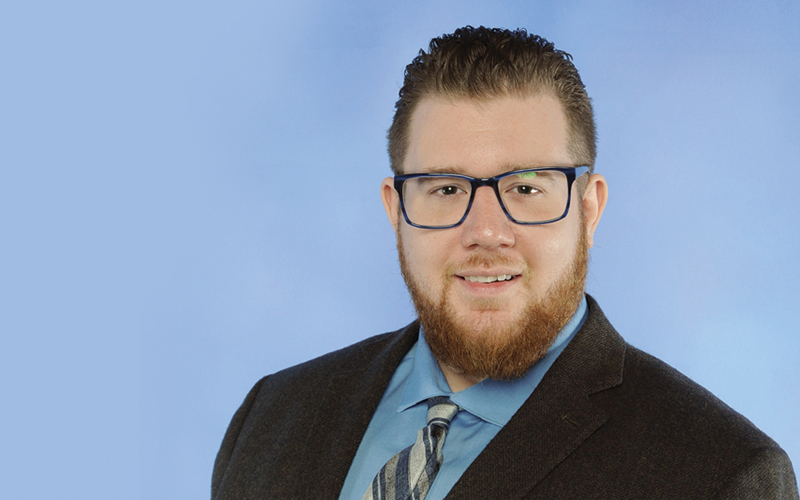
TRAVIS OSMOND (27)
Founder, President & CEO
Kasis Environmental Ltd. (Moncton)
Travis Osmond originally set out to help gold mining companies clean up their waste, but now he thinks he can keep them from making a mess in the first place. Working on an undergraduate chemistry project led by Mount Allison University professor Andrew Grant, Osmond and his research team developed a material that attracts gold, “just like a sponge picking up water.”
In 2015, Osmond and Grant founded Kasis Environmental to see if they could turn that material—which they now call KCell—into a commercial product. If successful, it would provide mining companies with an alternative to cyanide, a highly toxic substance commonly used to separate gold from rock.
“Cyanide works extraordinarily well. And it’s very cheap. And the business of gold is a business of dollars,” Osmond says. “And it’s really hard to be cost-competitive with cyanide.”
Osmond thinks he’s done it. After some initial research funding from the New Brunswick Innovation Foundation, among others, he’s now working with an engineering firm in Quebec. They’re doing tests to see if KCell is effective and scalable for commercial use. Osmond expects the tests to be finished in February 2020.
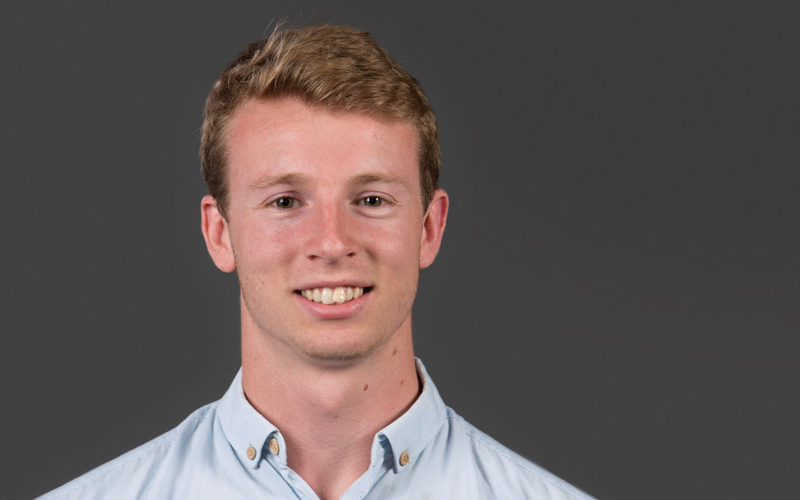
SAM POIRIER (23)
CEO
Potential Motors (Fredericton)
When Sam Poirier co-founded Potential Motors in 2017 with fellow engineering students Michael Barnhill, Nick Dowling and Isaac Barkhouse, he was focused on helping the world transition from gas-powered cars to electric vehicles, and the company was making kits to convert gas engines to electricity. The business shifted gears after Chris Newton, a co-founder of legendary Atlantic Canadian tech firms Radian6 and Q1 Labs, joined the team in June 2019.
“Now the focus is on using advanced artificial intelligence (AI) software to basically control electric vehicles in ways that would never have been done before,” Poirier says.
Like a plane’s onboard computer system that optimizes flaps according to the pilot’s steering, the Potential Motors team is developing AI-driven software to optimize a car’s operations, especially in harsh winter conditions. Their work could also be used in regular or self-driving cars, says Poirier.
The software is still “very much in development,” he says. “We are in the process of prototyping it right now.” Once it hits the market, he hopes it will improve electric vehicles’ function and reliability, making electric vehicles more attractive to skeptical consumers.
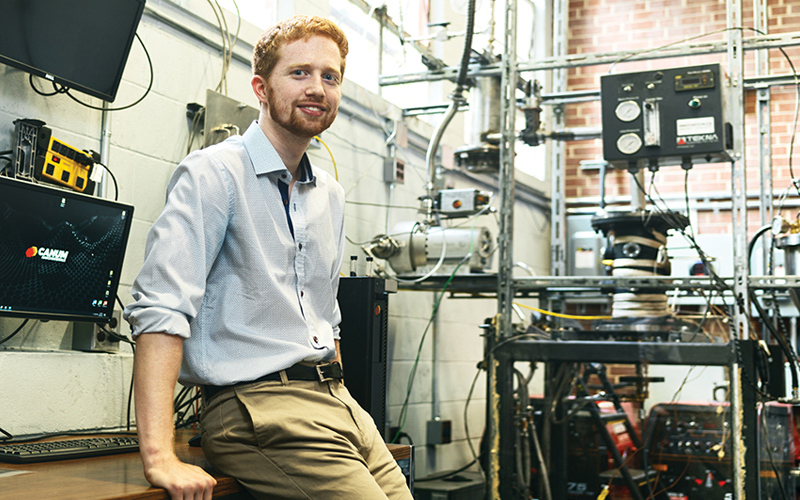
KYLE WOODS (23)
CEO
Canum Nanomaterial (Fredericton)
A tiny, spherical molecule made of carbon atoms called fullerenes could help New Brunswick become a world-renowned nanotechnology hub. At least, that’s the dream.
“It’s a little ambitious, but we’ll see,” says Kyle Woods, the 23-year-old CEO of Canum Nanomaterials. He and his team—which includes UNB professor Felipe Chibante, who studied with Nobel Prize winner Richard Smalley (the so-called “father of nanotechnology”)—have figured out how to produce fullerenes in a way that doesn’t produce greenhouse gasses or other unwanted stuff. Fullerenes can soak in the sun’s energy and turn it into electricity, and they’re used in solar cells; if you’ve ever seen a solar panel with a reddish hue, it’s likely made with fullerenes.
Fullerenes can be mixed into inks and printed on thin strips of plastic, almost like laminating. Those thin, flexible strips can be used in things like clothing or window blinds, Woods says. “You can actually put it in the panes of your windows.”
That’s exactly the market Canum is gunning for: building-integrated solar power. After a $350,000 win at the Breakthru business competition, Canum is moving from a lab-scale operation that mostly makes samples to a pilot facility that produces the molecules for profit.

Comment policy
Comments are moderated to ensure thoughtful and respectful conversations. First and last names will appear with each submission; anonymous comments and pseudonyms will not be permitted.
By submitting a comment, you accept that Atlantic Business Magazine has the right to reproduce and publish that comment in whole or in part, in any manner it chooses. Publication of a comment does not constitute endorsement of that comment. We reserve the right to close comments at any time.
Cancel